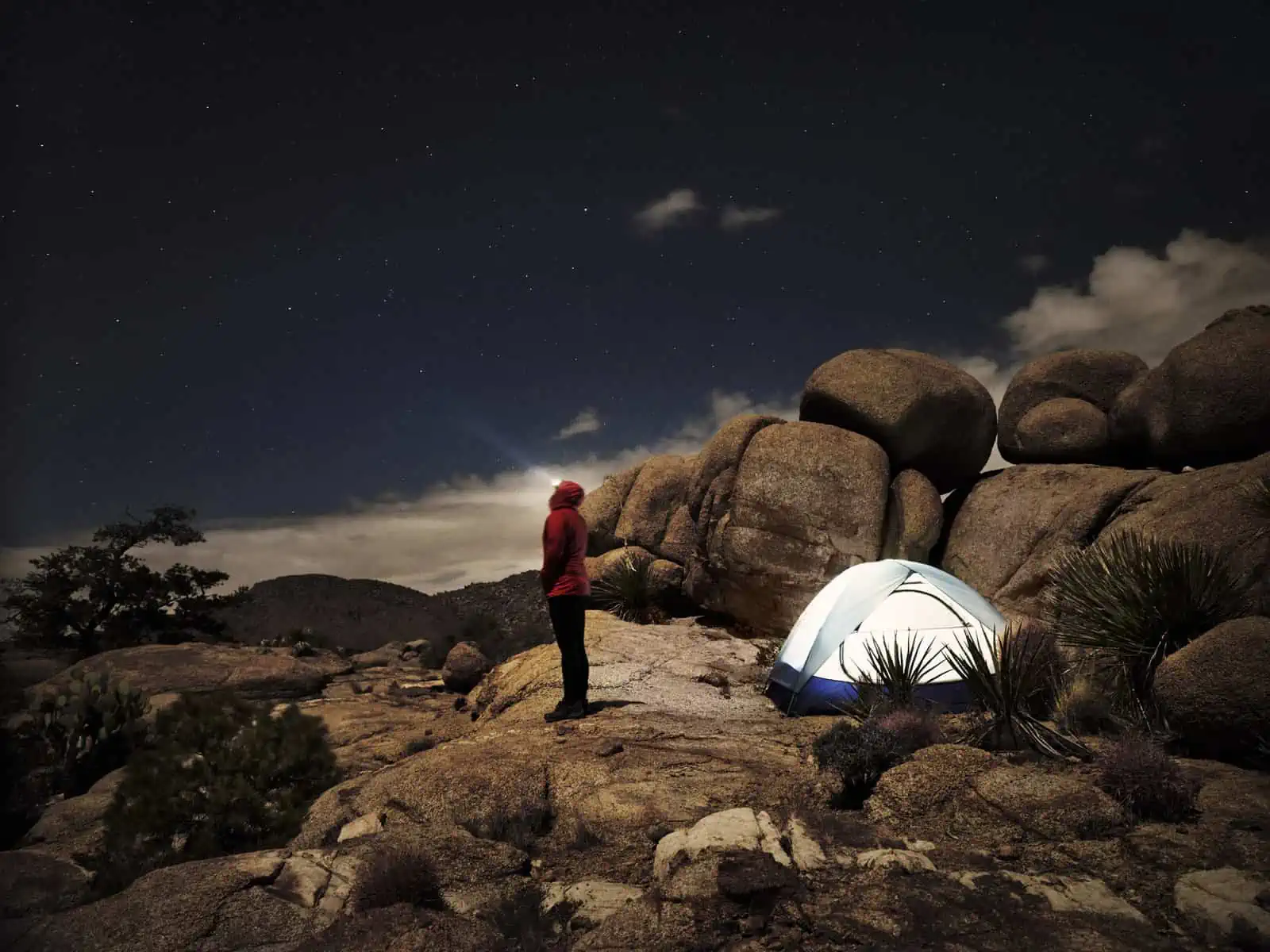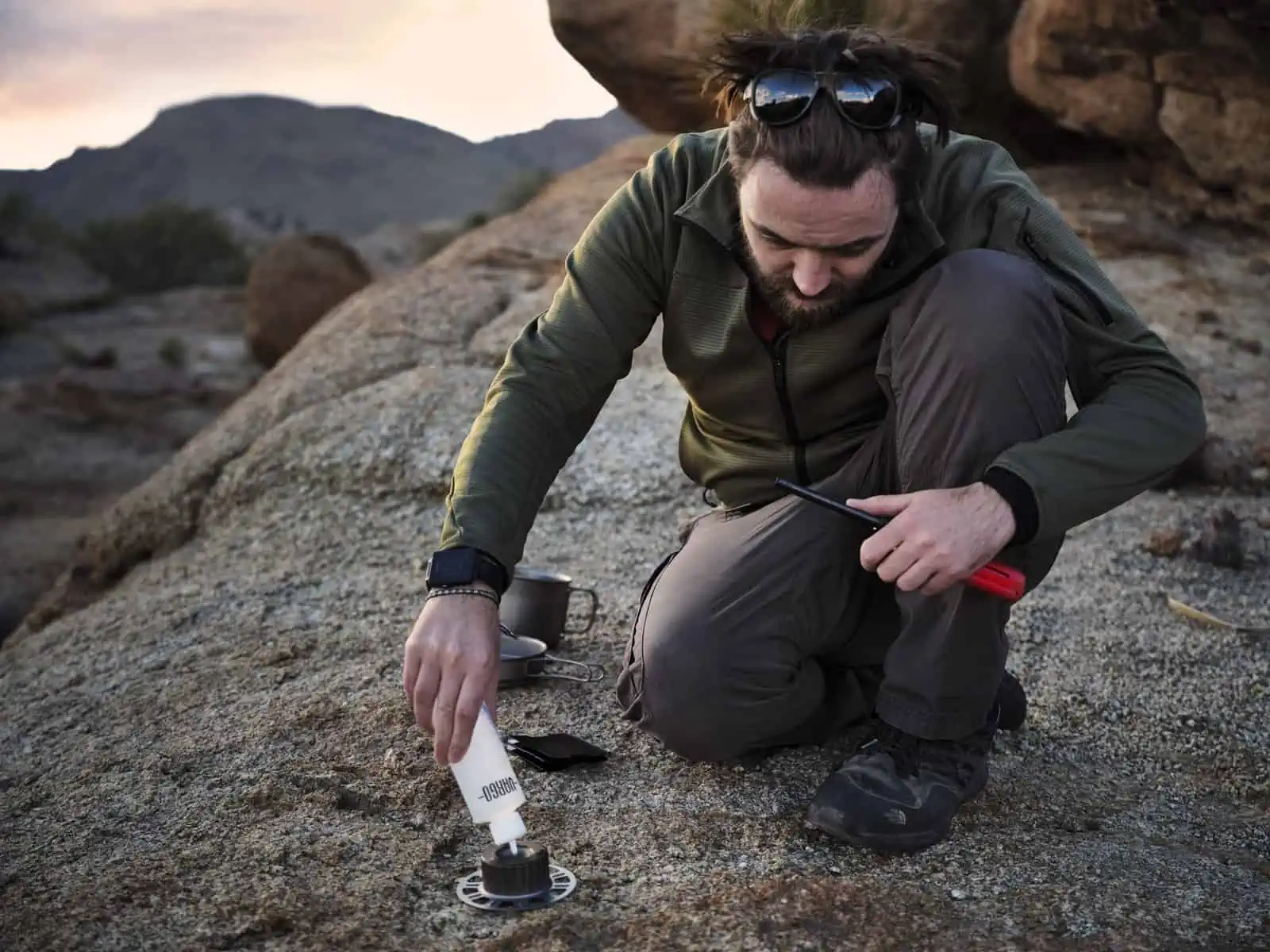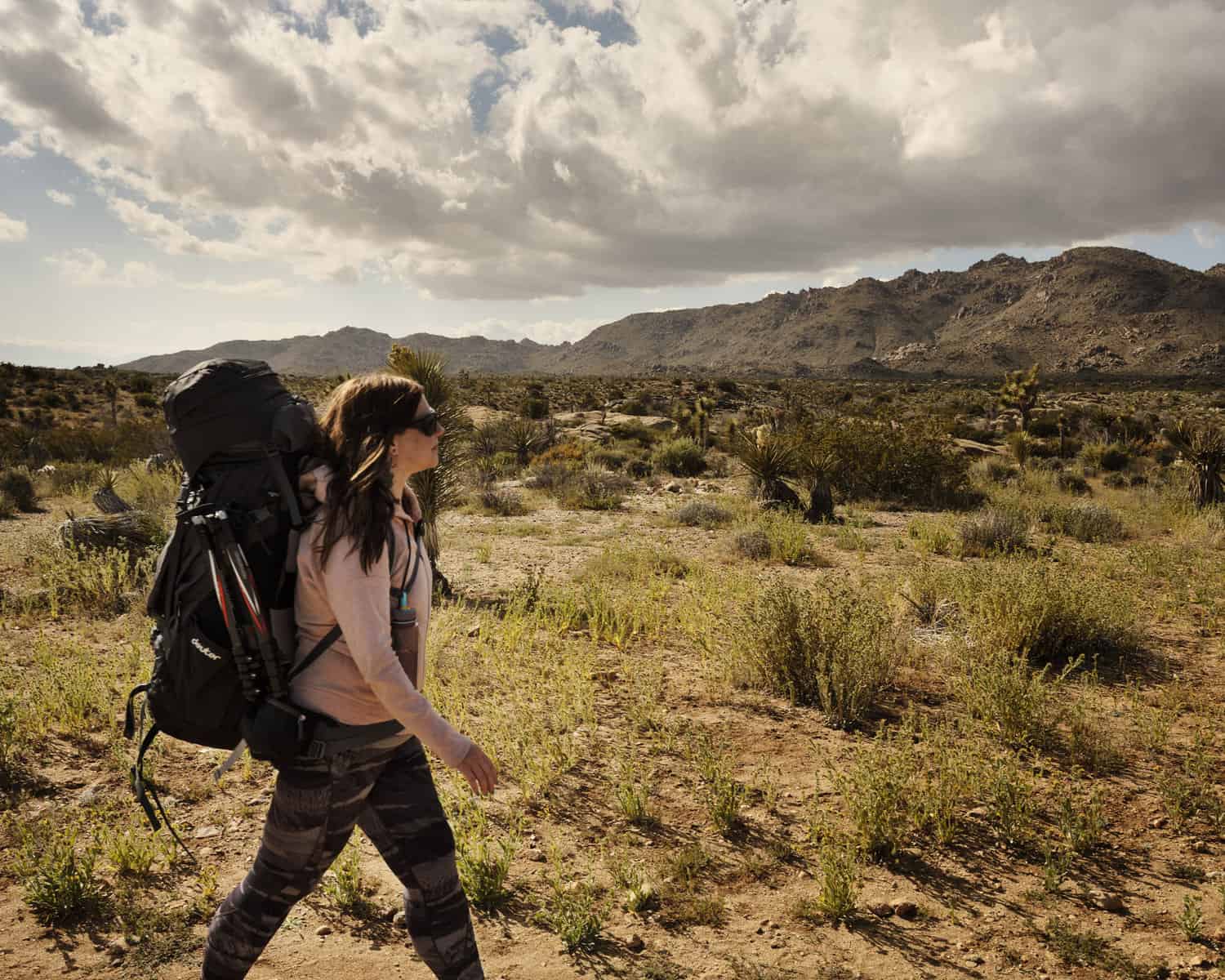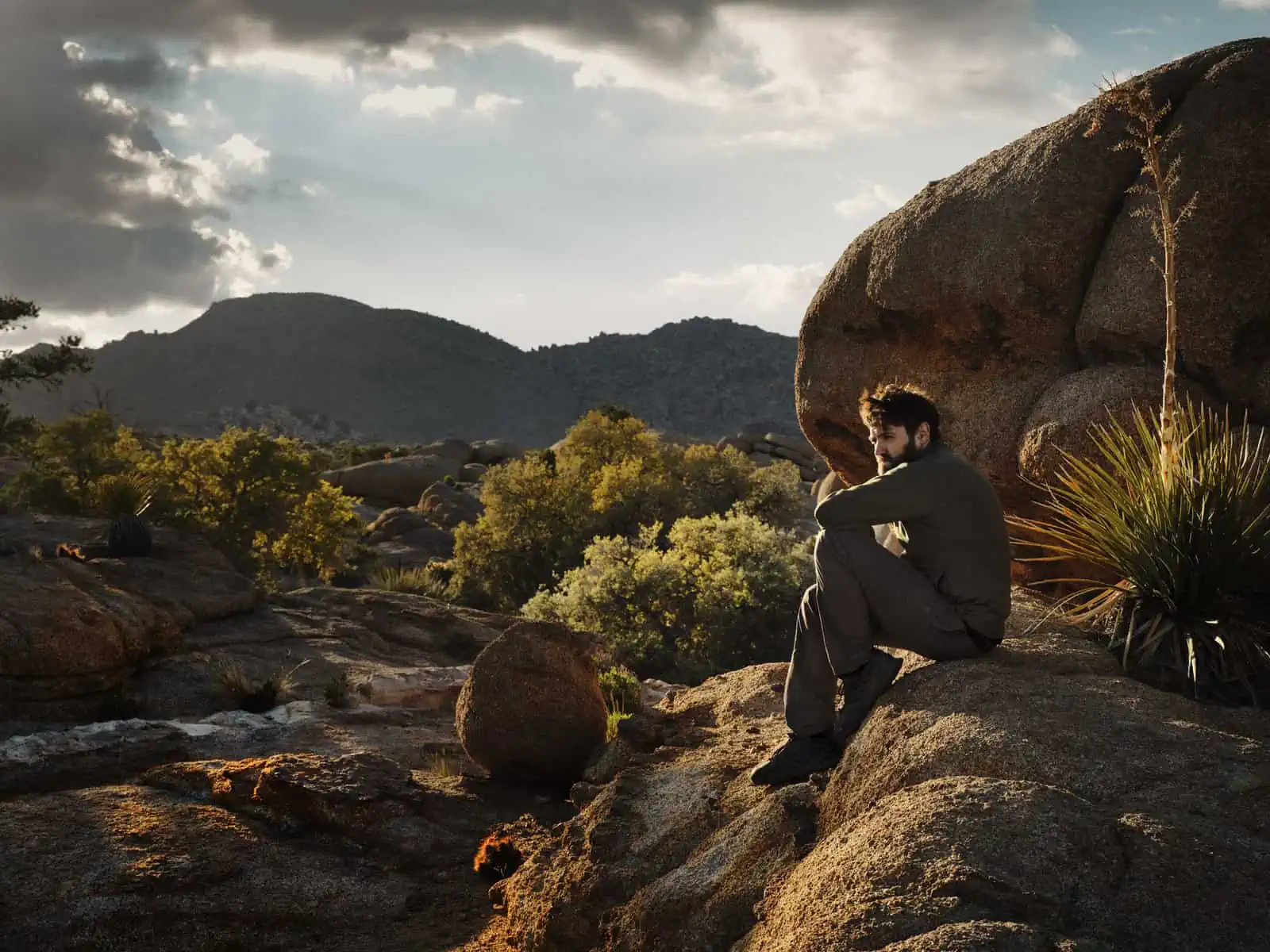You might have a hike in mind that involves camping mid way through, or there could just be an urge in you to spend some time truly in the wilds of nature. Backcountry or wild camping can give you such an incredible diversity in the options for your hikes, allowing you to access things that may not have been possible to you just from a day hike. It can also be really easy to make a few mistakes that can impede your enjoyment. It’s really important when going self supported to feel confident in what you’re doing so you can concentrate on the reasons why you decided to do this in the first place. The sense of achievement you get from being in the wide open and possibly having pushed yourself out of your comfort zone is incredible!
Where do you want to go and are you allowed to camp there?
There are some areas that you’re allowed to wild camp, and there are some areas that you’re only allowed to camp in designated areas. It’s mostly possible to check online what the camping regulations are in the area you want to camp in. This will differ from place to place, state to state and region to region. If you cannot find any information online about this, it could be best ringing the field office relating to the area and asking them. Be a respectful camper, and if the area you originally wanted to camp in is not possible, find an alternative. Sometimes you might need a permit to camp overnight, so it’s always best to find this out plenty in advance.
Check the terrain
Once you’ve decided on the area you want to camp in, check the terrain. A lot of camping regulations will ask that you’re around .5 miles away from a trail so as not to draw too much attention to yourself. Be sure to check out on a map if this is going to be feasible in the area you want to camp and what is involved in this.
Related articles: The best backpacking grills tried and tested
Know the trail
We’d really recommend your first wild camp to be in an area or on a trail that you know relatively well. Having a rough idea what is where on your camp will allow you to feel much more confident about your first night under the stars. If it’s possible, try to do the hike once before hand so you know what you’re dealing with. If this isn’t possible, or you’re wanting to do a through hike where you’ll be somewhere for the first time and you’re not feeling too confident, try a trail closer to home where you can camp up and get some confidence with your self sufficiency skills.
Do you have everything you need?
Depending on your hike length, weather conditions and various other factors, what you need to carry with you will change. It’s important to check what the day and night temperatures will mostly be like on your trail. It’s also important not to overpack. It’s important to make a list of the things you think you’ll need for this. Things like water are also very important to think about. For us, on our last backcountry trail, there was no water source for the whole trail so we had to bring as much as we needed with us. It’s important to find out as much as you can about water sources before you go as possible. Sometimes lakes will have dried up. Sometimes you won’t need as much water due to heat conditions. Packing and what you feel is needed really depends on personal taste, but as a general rule the basics you’ll need will be a tent, sleeping bag, light source (torch/headlamp), rubbish bags, toilet paper, food, camp cooking, water or water bottles and a change of warmer clothes for the night.
How heavy is your bag?
If this is your first time carrying your world on your shoulders, we’d really recommend packing up your kit and seeing how much it weighs. Can you do a couple of training hikes with a similar weight in your pack? This will really help you feel more comfortable when you’re hiking? Our main tip here is that you might think you need something when packing, but when you’ve walked a good few miles uphill, you’ll really question whether you actually needed that extra pair of trainers..
Check all of your equipment works/you know how to use it before you go
If you’ve bought new things, such as a stove or a tent for your trip, check that you know how to put it together and that it all works. It would be pretty miserable if you can’t work out how to set up your tent or heat up some water for your dinner after a hard days hike! It’s also another matter if you’re finding your stove hard to light in the wind, so knowing how your kit works will allow you to become more confident in problem solving. Knowing that all of your things work the way they should will make you feel a lot more confident when you hit the trail.
Pack your kit sensibly
It’s a good idea to get all your kit out on the floor and then start organising it by group. Once you’ve put together some piles that make sense to you, put these in plastic bags. This will keep your stuff dry if there is any rain (or you could by specific dry bags). Think logically about what is going to be most important to you and pack your bag accordingly. You don’t want to be getting to your camp site and just throwing everything out of your bag all over to try and find your camping stove.
On the day of the camp
Make sure you sign the trail register (if there is one)
On a lot of trails, there will be a register to sign so that the rangers know who is out there at any given time. For your own safety, make sure you sign the register usually located at the trail head of a hike. You’ll often find permits for overnight camping in the trail register box. It’s also a good idea to pop a note on your car explaining where you are to avoid towing!This is all assuming that you’ve done your research and found out that you don’t need to get a permit for camping in advance.
Allow plenty of time to get to your camping spot and be prepared to adapt
You can have the best intentions in the world, but when you get to your camping spot, it might not be possible in that exact spot for a number of reasons. Be prepared to rethink where you might pitch up for the night and have a couple of options already planned out. It’s also a good idea to try and give yourself plenty of time to get to the camping spot before sundown. There’s nothing worse than trying to pitch up a tent in an area you don’t know so well in the dark. Plus, if you set up earlier, you get to enjoy the sunset from your home for the night!
Leave no trace
Leave no trace is incredibly important in any area you camp and it’s really important to look up what the rules and regs are for the area you’ll be in. It’s important to try and stick to areas that have no heavy vegetation that may be affected by your stay and, if possible, try to stick to already established campsites/spots that look right for the footprint of your visit. Make sure to clear up, pack in and pack out any food waste you might have. In terms of washing up, think about the ecology of the ares you’re in. When it comes to going to the toilet, check the specifics of the area, you’ll either be going in a bag or digging a hole in the ground! If you’re planning a fire, make sure only to light in designated areas. Camp stoves can usually serve a great purpose instead for this. We really like Vargo Outdoors titanium equipment as it’s really light weight!
Enjoy it
You’re pitched up, you’ve filled your tummy and you’re feeling satisfied from the day. It can sometimes start to feel awfully dark out there once you’ve become used to the stars. If you start to hear bumps or rustling in the night, try to stay present. It’s great if you can camp with someone else, but if this isn’t possible, always be sure to stay mindful. You might want to bring a book to read, or download some podcasts to listen to. You might even want to download something to watch on your tablet to pass the evening. Sometimes though it can be just as exciting to look out at the stars and think. It can be pushing quite far out of your comfort zone being out in the wilderness overnight so be sure to soak in how much you’ve stretched yourself and what you’ve achieved.
Allow yourself a little luxury
Little lightweight luxuries like a jar of instant coffee or a notebook and pen can make all the difference when you’re in remote areas.
Tell someone
It’s a good idea to tell someone what you’re going to be doing and when you can be expected back. If you’re camping in a place far away from home and you don’t know anyone in the area, text a friend and tell them what you’re doing and to expect a text from you at a rough time the following day.




